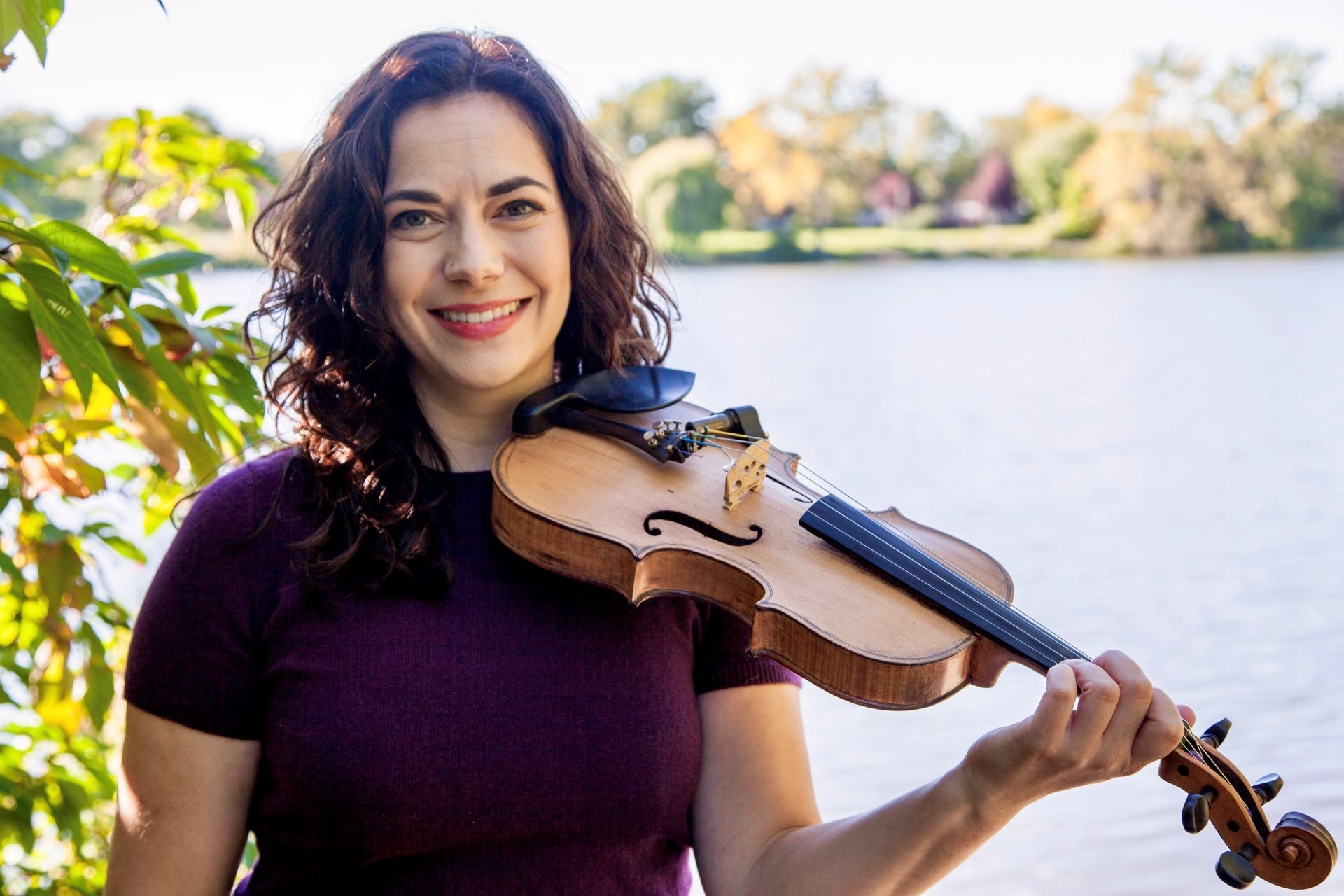“I didn’t speak French when I arrived in Montreal,” says Kate Bevan-Baker, PhD 18, a Concordia alumna and fiddle player who hails from Newfoundland.
“I was homeschooled until grade seven, and I had zero French. I started learning French just before the pandemic, and this has allowed me to connect more fully with Montreal’s linguistic tapestry.”
Bevan-Baker’s adds that her affinity for Montreal deepened as she discovered Concordia’s School of Irish Studies and its professors. The university’s diversity, welcoming atmosphere and interdisciplinary approach appealed to her, and she began teaching part-time while completing her PhD.
Now Bevan-Baker teaches courses across six different Concordia departments: music, Irish Studies, interdisciplinary studies in fine arts, history, anthropology and sociology.
“In my lectures we don’t do final exams. Students choose between a final paper or a podcast, accommodating diverse learning styles. I encourage them to explore topics, drawing comparisons to their own cultures, embracing the richness of many languages beyond just English and French,” she says.
“My goal is to spotlight the differences and commonalities among languages. Music is its own language, after all.”
For Bevan-Baker, the decision to stay in Montreal was not merely academic — it was a choice to explore the musical connections she had forged. As a fiddle player, she was inspired by the city’s jazz, rock and Québécois folk scenes.
Today, Bevan-Baker has become fully immersed in Quebec culture. She developed a friendship with luthier François Gagnon — and now performs regularly on one of his instruments — a fiddle duo with Émilie Brûlé called Archetype Trad, and has collaborated with the likes of the Orchestre symphonique de Longueuil and the Orchestre symphonique de Trois-Rivières.
“I’m surrounded by more francophones than anglophones,” says Bevan-Baker. “But it’s a journey I love!”
As discussions of potential tuition fee increases for outside-of-Quebec students unfold, she expresses concern about how they might limit opportunities for students to learn French and to explore Quebec society, as well as limiting possibilities for a rich multicultural and multilingual education in Montreal.
Bevan-Baker’s own journey towards cultural integration underscores the importance of maintaining access to Quebec’s universities, she says.
Her collaborations and contributions to Quebec’s musical landscape certainly show the positive impact out-of-province students can have. In Bevan-Baker’s case, Quebec gained not just a musician but a cultural ambassador.
Find out more about graduate studies in Concordia’s Faculty of Arts and Science.
 Photo: Cathy Rousseau
Photo: Cathy Rousseau


